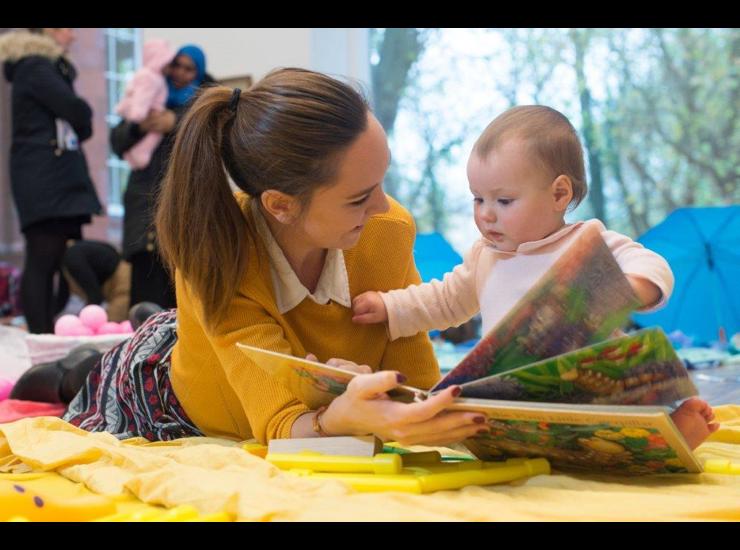
I visited my two-year-old niece over the Easter weekend. Before I’d had a chance to take my coat off, she came running over to me with her Oh No, George book under her arm, and asked me to read it with her. As soon as we finished reading it together, she said “again, Shimmy (Jamie), again”!
I’m sure most parents have experienced this at one time or another. I’m also sure that when it comes to reading the same book for the 100th time, it starts to become a bit of a drag. However, I’d bet that most parents would still go ahead and read that book with their child, for the 100th time, because they know that reading is good for children. And they’re right, because reading is good for children! Think of it as a Domino effect: Children whose parents read with them regularly in the early years tend to develop a larger vocabulary. These children then enter school with better language skills, and so they perform better at school, and go on to enjoy better success in adulthood.
But what if you’re a parent who can’t read very well or aren’t confident in your own reading ability? What if you had a bad experience reading at school? If you’re a parent who is nervous about your own reading ability, the chances are you’re going to be even more worried when it comes to reading with your own child.
Reading with children on a daily basis is likely to become a bit of a chore even for the most confident or knowledgeable parent. Even with the best intentions in mind, reading with children is something that tends to get pushed to the bottom of the family life to-do list. That's why The Reader's Shared Reading programme, came to our attention.
The Reader's Shared Reading programme places emphasis on the enjoyment of reading. It has been successful in promoting reading among groups who do not normally read. We were interested in how parents and children from lower socioeconomic backgrounds would respond to The Reader's Shared Reading programme. Could we encourage parents to enjoy reading with their children? In doing so, would this lead to increases in their child’s vocabulary?
Across two different school terms, 3 to 4 year old children and their parents were asked to go along to a weekly reading group, once a week, for 8 weeks. Families were either asked to go to The Reader's Shared Reading programme or they were asked to attend an existing reading group at their local library.
The Reader’s Shared Reading programme did not significantly improve children’s vocabulary. However, the reading groups were only for 8 weeks which may not have been long enough and/or intensive enough to show any positive changes in children’s vocabulary. Nonetheless, families were more likely to go along to The Reader’s Shared Reading groups than the library groups. Also, The Reader’s Shared Reading groups were rated more favourably than the library groups. These findings suggest that the Reader’s Shared Reading programme is successful in engaging families from lower socioeconomic backgrounds to attend weekly reading groups. Parents who took part in The Reader’s Shared Reading groups also showed some increases in the number of hours they themselves spent reading and also how often they read with their children.
Read the full report to find out more: Lingwood, J., Rowland, C., & Billington, J. (2017). Evaluating the effectiveness of The Reader’s ‘Shared Reading’ programme: A Randomised Controlled Trial.

